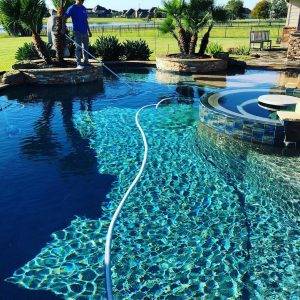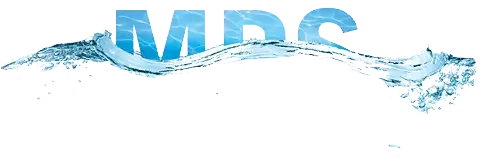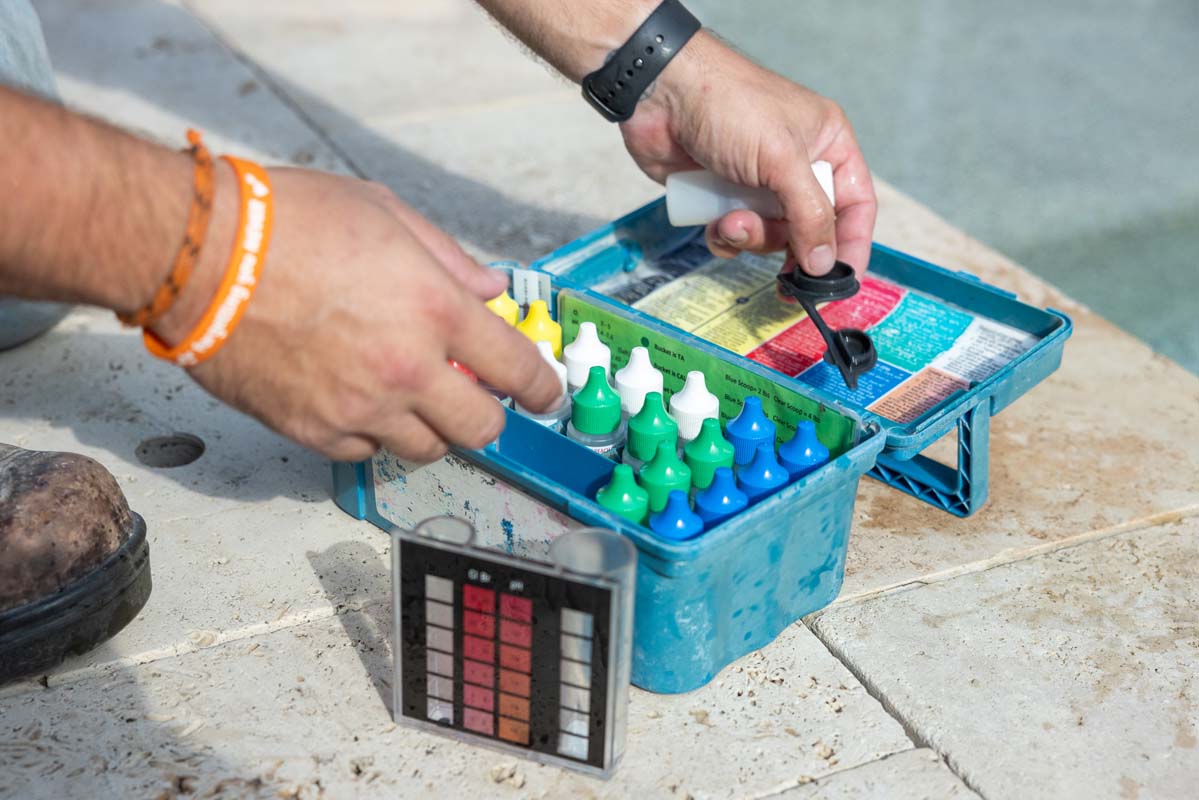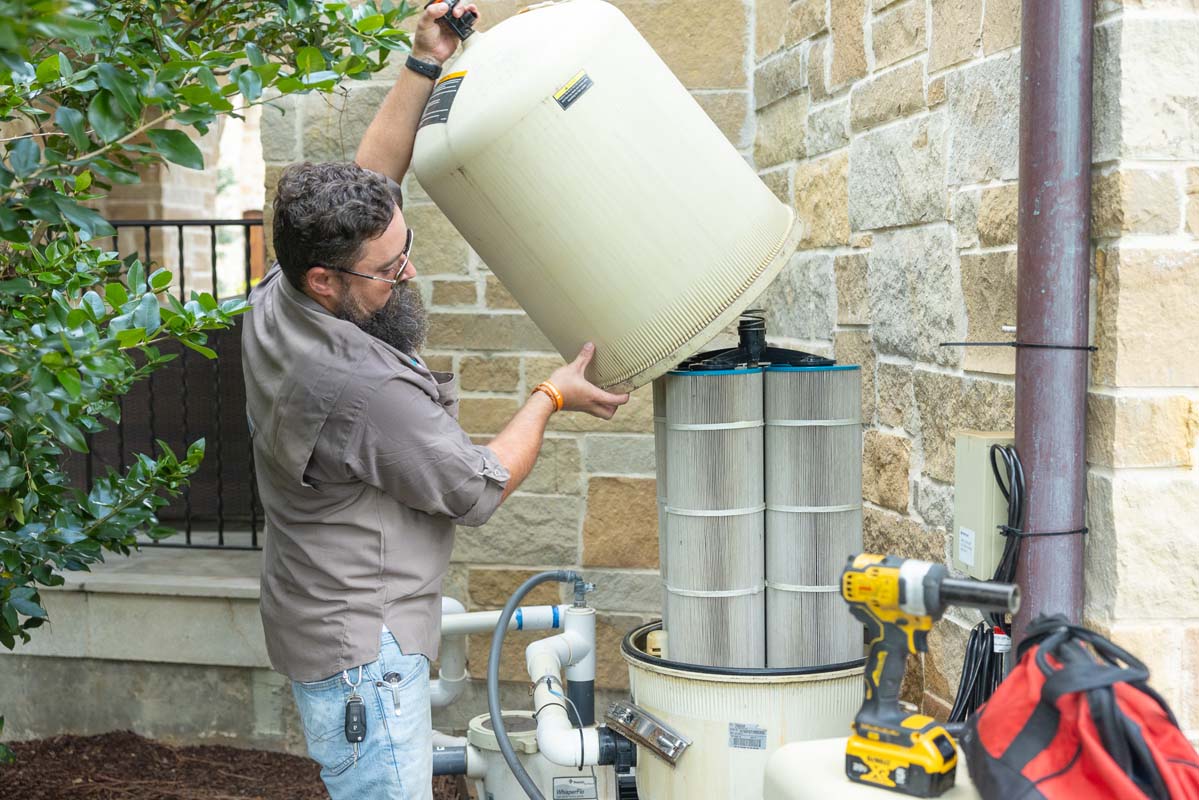Along with enjoying the benefits of having a pool, a pool owner has the responsibility of ensuring that it remains safe, healthy, and clean.
For keeping this backyard oasis in shape, you need to follow several things on your maintenance checklist. One essential aspect of this is to check whether the Total Dissolved Solids (TDS) level in the pool water is within acceptable limits.
What is Pool Water TDS?
TDS measures all the different kinds of substances that get dissolved in the swimming pool water.
The level of TDS in your pool may increase due to additives such as chlorine, algaecide, shock, clarifiers, or water balancers like pH reducer or increaser.

In addition, swimmers add to the pool water TDS level with sweat, deodorant, perfume, hairspray, and other body oils running into the water.
Besides, everything that the rain washes in or the wind blows in contributes towards an increase in the pool’s TDS level. In simple terms, building up TDS in a pool over time is inevitable.
“Total Dissolved Solids (TDS) is a measurement of substances that get dissolved in the swimming pool water.”
Why is TDS Important to Monitor?
A lot of unwanted things can happen if the pool water fills with dissolved substances beyond a limit.
Despite a good reading for available chlorine, you might find algae growing, or there could be corrosion even though the water is balanced.
There could be other issues like cloudy water, even in the presence of proper chlorination and filtration. Swimmers may suffer from skin and eye irritation, and false results can show up in chemical tests.
When the pool water TDS level gets too high, the pool water might acquire a disagreeable, salty taste. This result is due to the sodium content in chemicals such as sodium carbonate, sodium bisulfate, sodium bicarbonate, and sodium hypochlorite that are used during pool maintenance.
What Is An Acceptable Pool Water TDS Level?
TDS is the total of all substances dissolved in the pool water and usually is around 250 ppm or higher.
 There are varying opinions regarding when the levels should be considered high, but when it comes to lower limits, there are no fixed views.
There are varying opinions regarding when the levels should be considered high, but when it comes to lower limits, there are no fixed views.
Since a large number of chemical compounds derive a certain TDS level, the actual composition needs to be considered, rather than the quantity.
The general opinion is that when pool water TDS is over about 1500 ppm, problems are more likely to occur.
It is important to note that pools which have sanitizing systems based on bromine or chlorine generation equipment are likely to have higher TDS levels. Here, some form of salt is added to the pool.
Since it is highly soluble, it does not cause problems usually attributed to high TDS, but like any chemical, it does add to the pool’s TDS level. When the water in such pools is tested for TDS, intentionally added salts need to be considered.
Can TDS Problems in Pools Be Fixed?
Unfortunately, no miracle off-the-shelf product is available to remove TDS from swimming pool water.
You might think that running your filter longer can help in removing TDS. But, this will not happen because although pool filters can remove suspended particles in water, they are unable to remove dissolved materials.
“Although pool filters can remove suspended particles in water, they are unable to remove dissolved materials.”
With large quantities of solid suspended particles, consider hiring the services of a pool company. They will pump the entire pool water through a reverse osmosis filter. And put it back into the pool after cleaning. Draining the pool completely every 3-5 years is recommended to maintain the hygiene of your pool.
This brings us to the next question.
Can Evaporation Help in Reducing your Pool’s TDS Level?
No.
 In fact, water evaporating results in increasing dissolved solids until the time replacement water is added. Probably the easiest and best way to reduce a pool’s TDS level is to drain it and fill it up with fresh, unsaturated water.
In fact, water evaporating results in increasing dissolved solids until the time replacement water is added. Probably the easiest and best way to reduce a pool’s TDS level is to drain it and fill it up with fresh, unsaturated water.
But hold on, before draining, make sure there are no other secondary issues responsible for your pool problems.
- Pool circulation and filtration changes as time goes by. Confirm that you have optimal and effective flow and filtration rates.
- Improper pool water balance with high pH. Or high calcium hardness, high alkalinity, and high cyanuric acid results in cloudy water with intensified sanitizer consumption.
- Nitrates and phosphates also consume sanitized, resulting in adverse water conditions. You can use test strips to detect phosphates and use a phosphate remover if required.
Finally, if your pool’s TDS levels still get out of control, it’s hard to add chemicals to adjust the readings. Then, you should be thinking about draining the pool and cleaning the walls and bottom.
Contact Manning Pool Service for all your pool needs today!
Contact Manning Pool Service for Houston Pool Maintenance
Houston pool maintenance company Manning Pool Service specializes in all types of pool services. In addition to the pool building, we handle pool repairs, renovation, and equipment repair. Call us at 713-322-6854 or contact online and discuss your pool needs.




